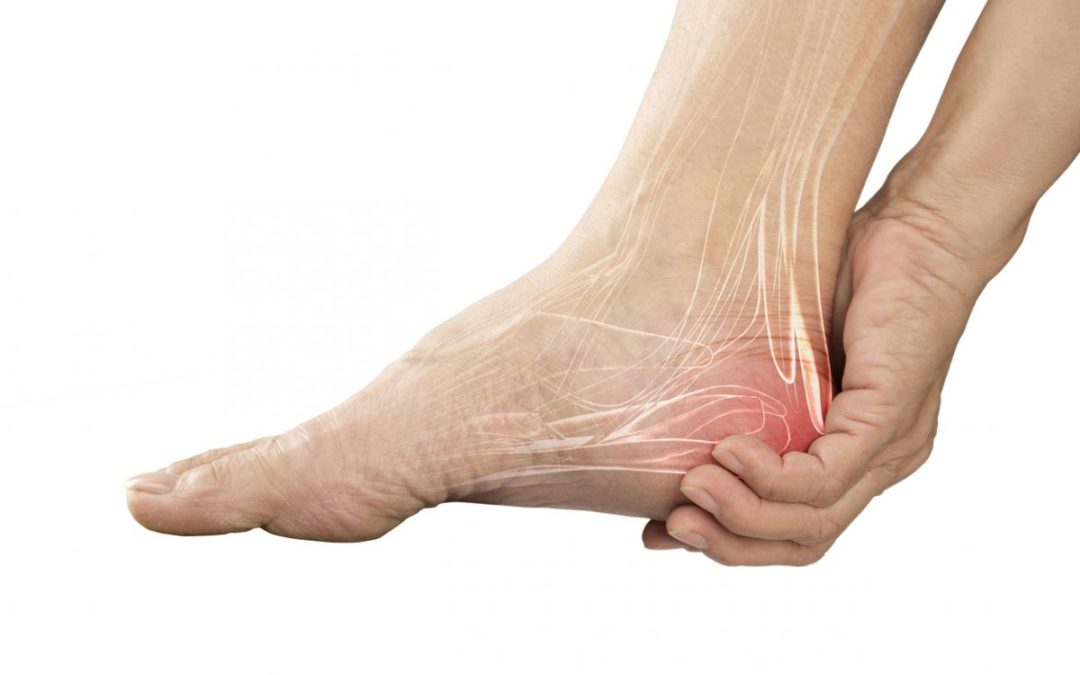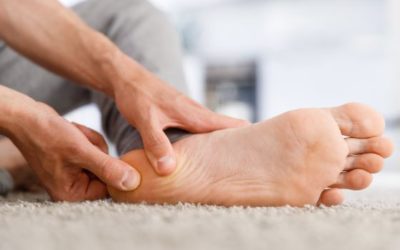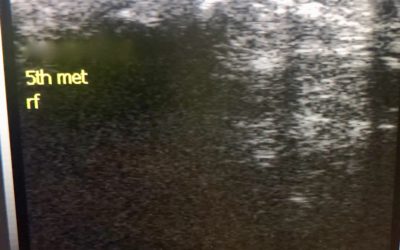The Achilles Tendon which Is also named the Calcaneal Tendon is a
very durable, strong band of tissue. It connects the calf muscles to
the heel bone, and it is the strongest tendon in the human body, capable of holding up to 3 times its body weight! The tendon can become inflamed due to overuse or injury. Inflammation is the body’s natural response to injury and often causes pain, swelling and irritation.
Achilles Insertional Calcific Tendinosis is a condition that can develop usually by overuse of the tendon. Repetitive mechanical stress
can lead to microtears in the Achilles tendon, as well as collagen
degeneration. Over time the tendon can become damaged and the
fibres of the tendon can harden, which can often lead to bone spurs.
The condition can be caused due to a few different factors including: a
sudden increase in the intensity or type of exercise. This could simply be
from increasing running distance, or changing from a low impact sport to a
high impact sport.
Furthermore, this condition can also be exacerbated by having tight posterior
leg muscles (calf muscles). This stems from the Achilles being constantly. under more pressure and therefore putting strain on it and the surrounding structures and tissues.
Common symptoms of the condition are having stiffness and pain along
the Achilles tendon, that is made worse during weight-bearing and strenuous
activity. This pain often continues into the next day and is usually quite
severe. Oedema (swelling) can sometimes be visible around the
Achilles, calf, and into the back of the heel. Thickening of the tendon is
also another common symptom, as well as having bone spurs from the
calcaneus which can irritate the Achilles.
Here at the Sussex Foot Centre we can diagnose the condition quickly and clinically using our Ultrasound. This allows us to look at the tendon as well as the
tissues and bones which surround it. We are able to see in real time if there is any
calcific bone spurs, and if the tendon is enlarged or damaged in any way.
We always recommend that patients who have AICT should wear
Orthoses or Insoles to ensure their foot is being held in an optimum position. As
well as taking the strain off the Achilles tendon, supporting the
surrounding structures and taking the load off. This helps to aid healing
and a reduction in pain and inflammation.
Additionally, another treatment option is a Corticosteroid Injection. This
treatment is when corticosteroid (steroid) is injected into the tissue
around the Achilles. This helps to reduce inflammation and pain in the
area, it is carried out under ultrasound guidance. If you have tried other
methods and are still experiencing pain and discomfort, then a
corticosteroid injection may be a good option for you.
If you would like to hear more about how we can treat Achilles
Insertional Calcific Tendinosis and other lower limb related conditions,
then please do not hesitate to contact The Sussex Foot Centre! We
would love to meet you!
Plantar Fasciitis: What is it?
Plantar Fasciitis is a common condition treated at The Sussex Foot Centre. ThePlantar Fascia is a large band of tissue which is situated along the bottom ofthe foot. Medical research states that Plantar Fasciitis affects up to 10% of thepopulation. It is therefore...
Calling All Runners
Calling all runners, we want to hear from you! If you are experiencing any aches and pains during or after your run, we would love to talk to you and discuss exactly how we can help. For a limited period of time, we will be...
Diagnostic Ultrasound at the Sussex Foot Centre
At Sussex Foot Centre we just love Diagnostic Ultrasound! Ultrasound is quick, easy, and straight forward. And the best part is that images can be seen straight away in real time. The moment the ultrasound probe comes into contact with the skin, the picture of exactly...
BOOK AN APPOINTMENT
Follow the form below to get through directly to one of our Podiatrists at the practice or to request an appointment.
Or call — 01444 453874
"*" indicates required fields




